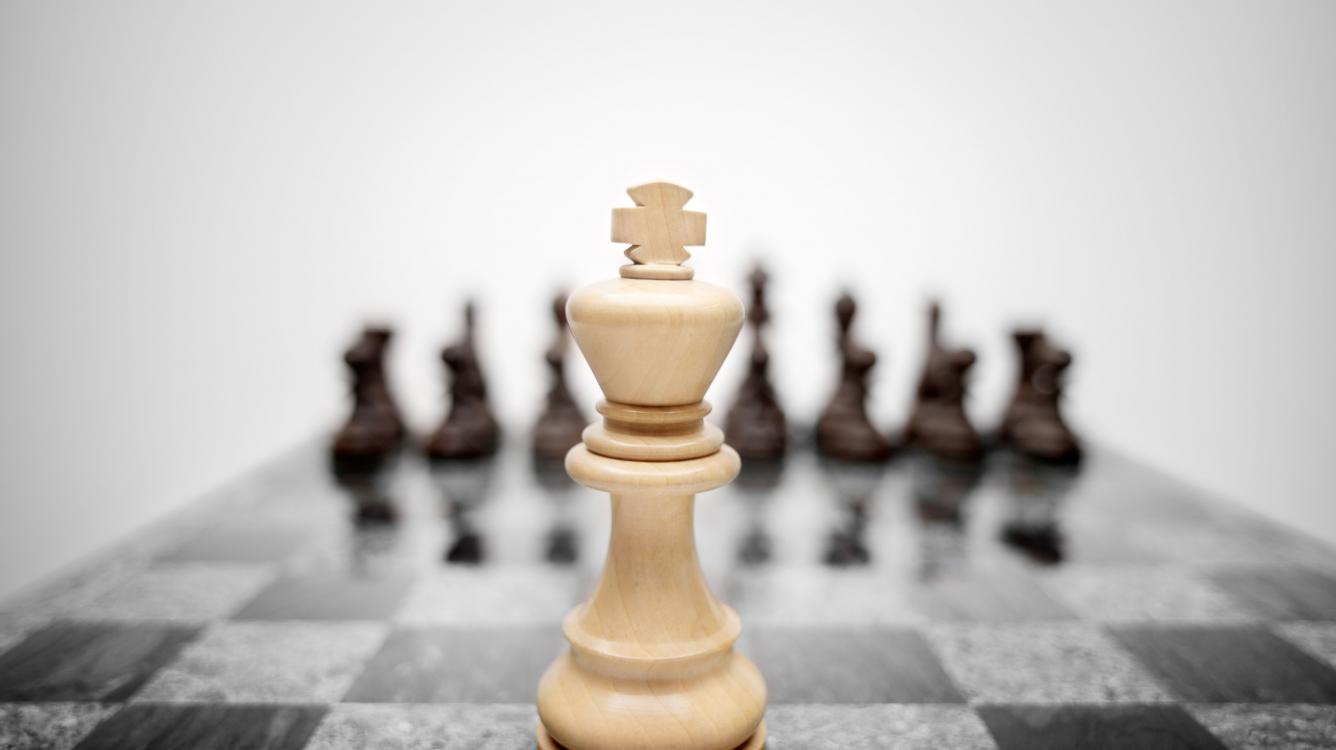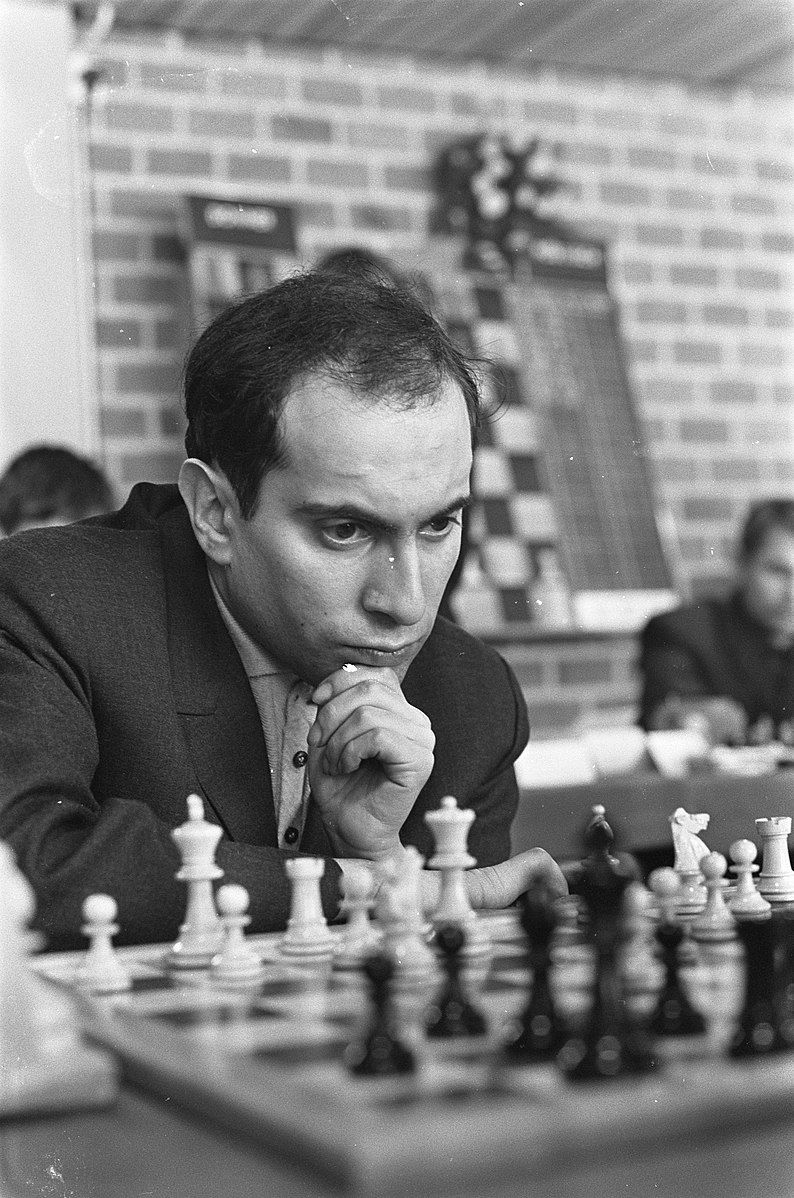
The Biggest Miracle In Chess
Stalemate is the biggest miracle in chess—there, I said it. You might disagree and give me dozens of different examples of chess magic and you might be correct too. We all have different definitions of beauty and magic.
Yes, when you see one of those GM Mikhail Tal games where he sacrificed a gazillion pieces and managed to win the game, it is definitely a magical experience. But to be fair, in all of those games Tal's remaining pieces were swarming around his opponent's king and therefore a checkmate wasn't that unexpected or even what I would call a miracle.

Stalemate is completely different. Usually it comes completely out of blue and that's stalemate's biggest wow factor. Who could forget the following famous game:
It is easy to understand how GM Alexander Beliavsky missed the stalemate combination. We are used to stalemates in the situations where the defender has just a lonely king and maybe a couple of blocked pawns, but in this game GM Larry Christiansen still had about half of his army when he started his combination!
Not everyone likes this unique feature of chess. GM Nigel Short didn't mince his words calling stalemate a "stupid rule".

It is not the most logical rule indeed. Imagine a real war where a commander-in-chief lost almost his whole army. He is completely surrounded by the enemies and cannot move anywhere. Yet, he stops the war and calls it a tie.
Nevertheless, I don't think this analogy is valid. As a coach, I see the biggest benefit of chess in its educational value. What can we learn from real wars? Pretty much only one thing: the wars shouldn't exist. There are no winners and losers there, since everyone loses, just to a different degree. Now, let's see what we can learn from just one feature of chess called stalemate.
1) It ain't over 'til it's over.
There are many versions of this famous Yogi Berra statement and song by Lenny Kravitz, but all of them mean the same: you cannot assume that you have accomplished your goal until the contest is officially over.
Whenever I have a lesson with my less-experienced students I always set up a position like this and ask them what would be the biggest danger White can face.

And then explain that White can blunder his queen, both rooks, both knights, and half of his pawns and he will still win the game. So, 5-6 blunders won't make any difference here, unless you blunder a stalemate–then you instantly ruin your game. My students nod in agreement only to do something like this in their next game:
It is painful mistakes like this one that teach chess players to keep their concentration until the very end of the game!
2) Don't be arrogant!
Sometimes chess players get a completely winning position and then, instead of going for a checkmate, start playing some weird mind games. For instance, they don't try to simply checkmate an opponent's King, but they want to do it on a certain square. Or before finishing the game they want to promote all their pawns, etc. In some, very uncommon cases, it makes sense. Take for example the following games of GM Hikaru Nakamura:
There are two reasons why I applaud Nakamura for this show:
1) There were hundreds if not thousands of people following these games live and you can imagine their joy of watching this spectacle.
2) Nakamura was playing computers and you cannot humiliate or disparage a computer!

Since you are reading this article, chances are that you are not a super grandmaster, so please don't do anything like this in your games. Nevertheless, if you decide to do a similar performance in your next tournament game, please remember that besides being unethical, such a display can endanger your win.
This is exactly what happened in a scholastic game that I watched many years ago. White had most of his army versus a lone king, so assuming that nothing can go wrong, he deliberately avoided numerous checkmate opportunities. His plan was to promote all his pawns first. Here is the final moves of the game:
As you can see, stalemate can teach humility!
3) Never give up!
Many people started playing chess due to Netflix's smash hit "The Queen's Gambit". If you are a fan of the series, you definitely remember one of the lessons Mr. Shaibel taught young Beth. Here is the key position:
Here Beth tried to make her next move, but Mr. Shaibel stopped the game saying "You resign now. When you lose your Queen this way, you resign!"
With all due respect to Mr. Shaibel's fictional character, he is completely wrong on many levels.
First of all, you don't talk like this to an eight-year-old orphan child who already had numerous issues. Secondly, the advice is completely wrong from a pure chess point of view. I already discussed it in this old article. Here is the game from that article that proves Mr. Shaibel completely wrong:
Notice, that my student who was about Beth's age, lost his Queen for just a pawn, so his situation was even worse, since Beth at least got a Bishop for her Queen. Luckily, my student kept fighting and even won the game.
I know what you are probably thinking: "Uh-oh, GM Serper is arguing with an amateur player, who is not even a real person. Besides, what does it have to do with a stalemate?" Good question! Stalemate is something that encourages you to never give up and fight until the very end since even if you are completely lost by material, there is still a chance!
Unfortunately, in the following game my student, who had a completely lost position for a long time, mentally gave up and missed a beautiful opportunity to save the game. Can you find it?
Here is how the game actually ended:
I hope you agree now that stalemate is chess' biggest miracle!






